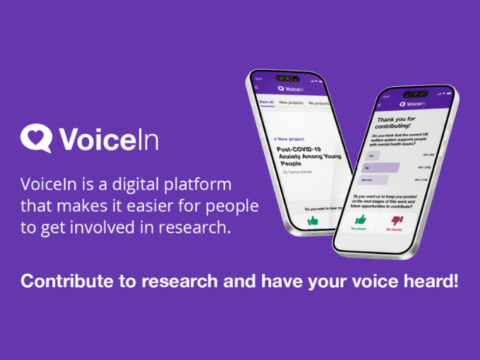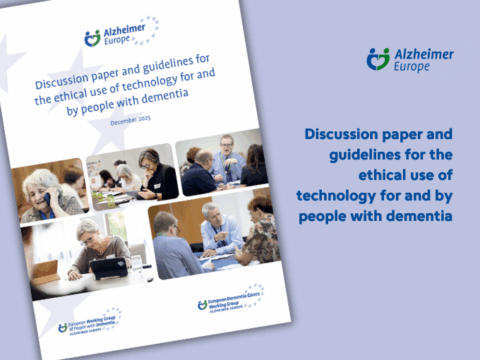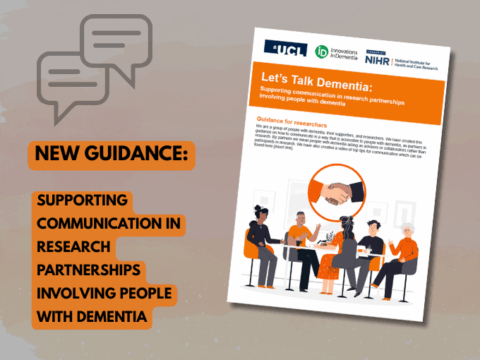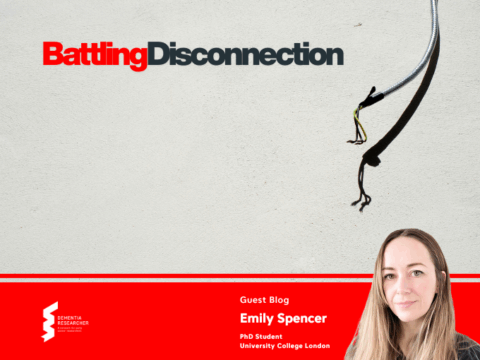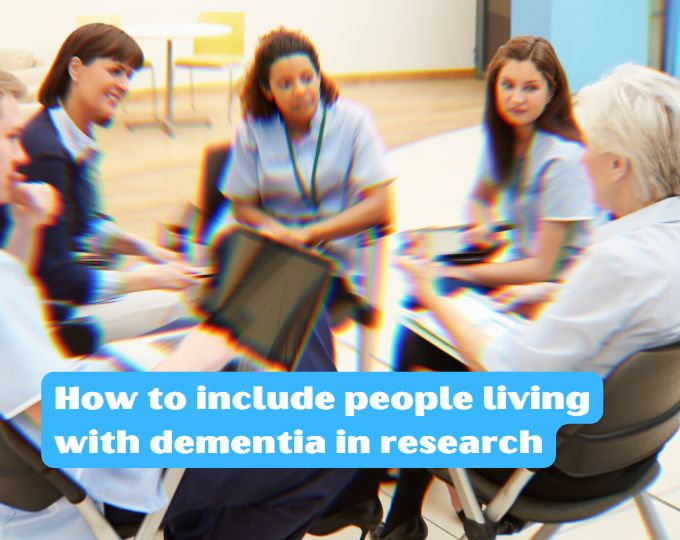
This week marks the Alzheimer’s Society’s Dementia Action week. Most of us know someone affected by dementia and many of us are aware that care is too often inadequate. Care and support are difficult to access and around three in five people affected by dementia feel they have not received enough support over the last year[1].
Thankfully, more research is focussing on how to better support and care for people living with dementia (PLWD). To ensure that this research generates solutions that focus on what really matters to PLWD , it is essential that their perspectives and those of their families are included in research. However, PLWD are too often excluded from research about their needs. Just 2% of PLWD are registered with Join Dementia Research, which matches people to dementia studies in the UK.[2]
Our current project, the Alzheimer’s Society funded PriDem study, a collaboration between the University College London and Newcastle University, aims to improve post-diagnostic support for people living with dementia. UCL is leading the evaluation workstream and in this blog we share some of our learning from the study on inclusion of PLWD in research.
Challenges to Inclusion
Perceived difficulties in obtaining consent, capacity to engage in research, difficulties in communication and concerns around people living with dementia being ‘unreliable’ are all possible reasons for PLWD being excluded from research.[3] When PLWD are included in research, it tends to be individuals in early stages of dementia. Through our work on the PriDem study, we have found that the three most common reasons for declining to take part in research included:
- The person either has advanced dementia and/or does not speak English. In our study, this would not make people ineligible, but a carer would need to take part to support inclusion and/or complete proxy versions of questionnaires. However, we found that some carers assumed their relative would not be eligible, so did not engage with the research information. Also, many carers experience strain, and are in one potential participant’s words, ‘too busy doing all the dementia care.’
- The person living with dementia gets anxious talking with new people.
- The person living with dementia is in denial or was not accepting of the dementia diagnosis, which would make it too distressing to take part. One carer commented that using the word dementia in study information materials can be off-putting for the person with dementia: ‘When the person is in this stage [of denial] you are stuck. Memory Clinic appointment call mentioned dementia FIVE times …. Find new ways of communicating without highlighting something possibly contentious.’
Strategies for including people living with dementia and their carers in research
Based on our learning the following are strategies we either used in the PriDem study to facilitate inclusion of PLWD, or would advocate using in the future:
- Involving people with lived experience to inform inclusion strategies: Throughout the PriDem study there has been involvement of patient and public involvement (PPI) group the Dementia Care Community (DCC). This group includes people living with dementia, carers and former carers who work alongside researchers to ensure the accessibility and appropriateness of research processes, facilitating the inclusion of PLWD.
- Developing a proactive and inclusive recruitment approach: PLWD often have difficulty with reading and may not engage easily with letters. We used a choice of participant information formats, including written, pictorial, audio and video. We took an ethical, proactive approach to recruitment, making phone calls to potential participants up to three times (depending on the outcome following each call), guided by a script developed with the DCC. 46% of people living with dementia who became study participants were recruited via a follow up call, showing the value of this proactive approach.
- Making information about the research project accessible: We created a video version of the study information sheet, but in future we could improve accessibility by showing more members of the friendly research team and examples of other PLWD taking part or talking about taking part in research. Calling carers and PLWD, rather than just sending letters, also provided us with the opportunity to explain to carers of those with more advanced dementia that they were eligible to participate in the research. The benefit of this approach is demonstrated by the relatively high number of participants in the PriDem study who did not have the capacity to consent themselves to take part but could participate with the help of a carer (42%).
- Making it as easy as possible for carers to find the time to participate: Carers are often incredibly busy and may not think they have the time to participate. This barrier could be overcome by including the costs of replacement care in research funding applications, collaborating with carer charities in the design phase, and costing in interpreters and collaborating with local language groups. Depending very much on the nature of the data, another solution could be training up carers to collect and record the data themselves.
- Being sensitive about language: Following early feedback from carers we tried to limit the use of the word “dementia” in the study documentation, instead using ‘memory and thinking problems.’ We talked with carers, who would help let us know early on what words we could use when we met people, which was very individual. For instance, one person was fine with ‘cognitive impairment’ but not dementia.
- Offering differenays to participate in research activities: To ensure continuous engagement in the research, participants were offered different options for completing health and wellbeing questionnaires, including home visits or completion online or over the phone or a video call. Despite developing a hybrid recruitment and data collection approach, all participants opted for most of the contacts with researchers to be in-person at their homes. Participants reported that in-person visits bring much needed conversation and company in the post-Covid restrictions era. Carers in particular need longer than anticipated to expand on multiple choice responses and verbalise emotional responses. We’ve reflected on the potential therapeutic benefits of the research visit, with carers telling us that they have no one to talk to about their experiences and that it was a difficult but also positive experience to be asked about it.
- Using visual aids to support questionnaires: We used cue cards with written words, to support participants to respond to multiple choice questions. These were a visual prompt to aid recall, and enabled people to stay on track. For video calls they could be sent in the post. Both PLWD and carers have stated that these have been very helpful. Using these cards for both carers and PLWD helps to not single out PLWD for additional communication support. Another benefit is that when a participant is worried that a relative can hear their responses from another room, they can just point. Rather than highlight that these aids were to help the PLWD remember the options, we framed this as a strategy for ‘keeping us all on track’ and ‘saving our voices’ when repeating options.
- Taking the time to build relationships: One of the most rewarding aspects of conducting research is building relationships with participants and having the opportunity to hear their perspectives. In the PriDem study, we build in extra time for visits to get to know participants, taking time to enjoy tea and cake (which participants frequently offer) and engage in informal conversation. This gives our participants a chance to get to know us as people, as we share information about our own lives. Often, people with dementia need plenty of time to answer questions and given the personal nature of questionnaires, carers often need time to consider their responses. Building in plentiful time for participant visits is essential to avoid people feeling rushed and helps build trust between researcher and participant. Because of delays to our research timeline, partly due to pressures within primary care, we were unable to routinely factor in peer researcher visits, which would have allowed more time to be spend with participants individually. Funding applications need to consider researcher capacity and support.
Given that people living with dementia are underrepresented in research about their own care and the growing need for interventions that support inclusion, these strategies could help facilitate the inclusion of PLWD in research and ensure future solutions reflect what matters to PLWD and their families. We hope that this blog contributes to and helps further the important conversation about inclusion.
About the PriDem Project: The PriDem programme is funded by the Alzheimer’s Society and is a partnership between Newcastle University; University College London; Kings College London; University of Sussex; University of Manchester; Dementia UK; London School of Economics and Political Science; International Longevity Centre UK; University of Exeter.
[1] Three in Five People Affected by Dementia Struggled with Too Little Support over Last Year | Alzheimer’s Society. https://www.alzheimers.org.uk/news/2022-06-29/three-five-people-affected-dementia-struggled-too-little-support-over-last-year.
[2] Tran, Quang. ‘Recruitment to Dementia Trials Lags behind Other Major Health Conditions’. Alzheimer’s Research UK, 1 Sept. 2022, https://www.alzheimersresearchuk.org/recruitment-to-dementia-trials-lags-behind-other-major-health-conditions/
[3] Brooks, Jennifer, Savitch, Nada and Gridley, Kate orcid.org/0000-0003-1488-4516 (2017) Removing the ‘gag’ : Involving people with dementia in research as advisers and participants. Social Research Practice. pp. 3-14.

Dr Sarah Griffiths
Authors
Dr Sarah Griffiths has a background in speech and language therapy and has been involved in aphasia research. For 14 years she was a senior lecturer on a BSc Speech and Language Therapy course at Plymouth Marjon University. Now Sarah is is a Senior Research Fellow in the Centre for Ageing Population Studies, Research Department of Primary Care and Population Health at University College London.

Emily Spencer
Emily Spencer is a PhD Student at University College London looking at improving how GPs communicate with people with dementia and their family carers about their future care. Emily previous had a 5 year career break to pursue a career as a muscian, and has previously undertaken research on improving the care people with dementia receive from their GP practice, as well as end-of-life and palliative care provision in the community. Emily is also a new mum and will be writing about her experiences navigating motherhood and a research career.
Katie Flanagan, Research Assistant, PriDem

 Print This Post
Print This Post

